Theme: Digital Worlds and Metaverse
ICCT is the first and comprehensive international conference on the various aspects of culture technology and its applications.
International Conference on Culture Technology 2022 will provide a chance for academic and industry professionals to discuss recent progress in the
area of cultural technology. The goal of this conference is to bring together the researchers from academic and industry
to share ideas, works, problems and solutions related to the multifaced aspects of culture technology. It is our great pleasure that ICCT2022 will be held jointly with the excellent international symposium iSAI-NLP-AIoT 2022.
Authors are
invited to submit original papers and works in all areas related to culture technologies and their applications. Topics
include, but not limited to, the following areas:
(a) VR & AR: Augmented reality, Virtual reality, Mixed reality, Multiple realistic space implementation, industry adaptive VR
(b) Game: Massive on-line game based on virtual world, Game for welfare promotion, Immersing cinematic reality game, Game utilization in culture
(c) Convergence Contents: Senseware, Smart contents, Edu-Contents
(d) Media: Animation CG, Digital cinema
(a) Contents Design: Storytelling, Contents producton pipeline
(b) Graphics: Physical engine, Rendering, 3D stereoscopic, Motion graphics, Hologram
(c) UX-based Interface: User experience, Action recognition
(d) Social Media: Social media analysis and utilization
(e) Data Management: Data retrieval for culture contents, Data collection and analysis for culture contents, DB modeling for culture contents, DBMS for culture contents
(f) Sound & Music: Sound technology and music technology
(a) Performance Technology: Technology of cutting edge of performance, Massive performance technology,
(b) Exihibition Technology: Advanced implementation technology, Digital exihibition technology
(c) Crafts Technology: Traditional material modernization, production technology modernization
(d) Traditional Music Technology: Modernization of traditional music, Advancement of traditional musical instruments, Populizing traditional music
(a) Cultural Heritage Technology: Culture enjoyment support technology, Restoration technology of original form
(b) Tourism Service Technology: Evaluation medel of tourism resources, Characterization technology of tourrism factor, Awareness raising of tourism R&D, Construction of tourism R&D support system
(c) Sports Service Technology: U-sports care service, Sports service marketing, Sports service information, Sports image/video analysis, virtual sports
(d) Library Technology: Journal publishing technology, Repositary technology
(e) Museum Technology: All museum technologies including exhibition and preservation technology
(f) Copyright Technology: Copyright protection & usage technology, Detection technology of copyright infringement, Management of copyright-works distribution
(a) Machine Intelligence: Intelligent technology applied to culture technology, New AI technology
(b) IOT & Big Data: IOT & Big-data technology applied in culture technology, New IOT & Big Data technology
(a) Culture & Technology in Humanity: Culture and technology related with humanity study
(b) Culture & Technology in Social Science: Culture and technology related with social science study
(a) Culture & Technology in Art: Culture and technology related with art
(b) Culture & Technology in Design: Culture and technology related with design
All convergence technologies not limited to a specific field
9. Special Session(Metaverse)
(a) Metavers Platform and Design: World design, Metaverse Introduction
(b) Metaverse Application and Industry: Publice Service or Applications in Metaverse
(c) Metaverse Technology: AI, Blockchain,Web3.0 and other Technology for Metaverse
(d) Metaverse Device and Building Tools: Immersion and Authoring HW/SW for Metaverse
(e) Digital Human in Metaverse: Characteristic Avatar Design, Connection between Avatars
(f) Strategy, Policy and Rule for Metaverse: National Metaverse Policy, Rules and Legar Issues in Metaverse
All papers will be fully refereed and undergo a blind review process by at least three referees of the international program committee. All accepted papers will be published in International Conference on Culture Technology 2022 Proceedings. Distinguished papers presented in the conference will be further revised and published in special issues of prestigious international journals(SCIE, SCOPUS, IJCT)
The paper must be written in English and follow the ICCT paper template provided below. The basic paper length 4 pages and limited to no more than 6 pages. Papers must be submitted only in MS-WORD(Doc) format. All paper submissions will be handled electronically via online submission system at the conference webpage
*** IEEE Paper Template Download(letter): Click here to download. or ***
*** IEEE Paper Template Download(A4): Click here to download. ***
*** IACST Copyright Form: Click here to download. ***
Full Paper Submission: September 30, 2022
Acceptance Notification: October 5, 2022
Camera-Ready Paper Submission: October 10, 2022
Early Registration: October 10, 2022
Kantary Hills Hotel, Chiang Mai Thailand
If you have any question for the conference, please contact Program Chair at dongkyun@knu.ac.kr.
Hosted by
International Association for Convergence Science & Technology (http://iacst.org),Chiang Mai University, Thailand
In Cooperation with
Artificial Intelligence Association of Thailand(https://aiat.or.th/english/)Rajamangala University of Technology Lanna (RMUTL)(https://www.rmutl.ac.th/)
National Electronics and Computer Technology Center, Thailand(https://www.nectec.or.th/en/)
Sponsored by
Oriental Consultants Global, JapanPinetree Asosociates, Korea
PIPA, Korea
BK21 Four of KNU, Korea
Paratus Investment, Korea
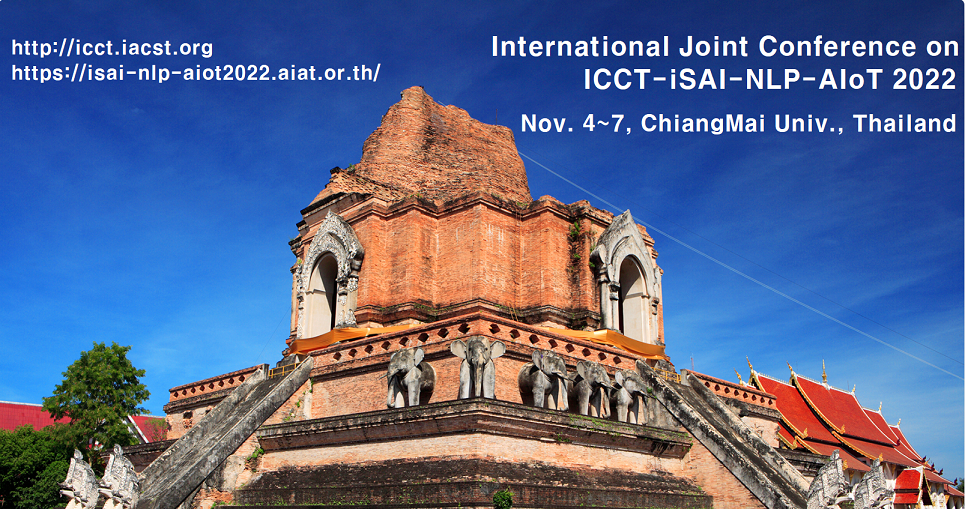
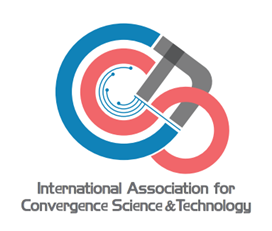





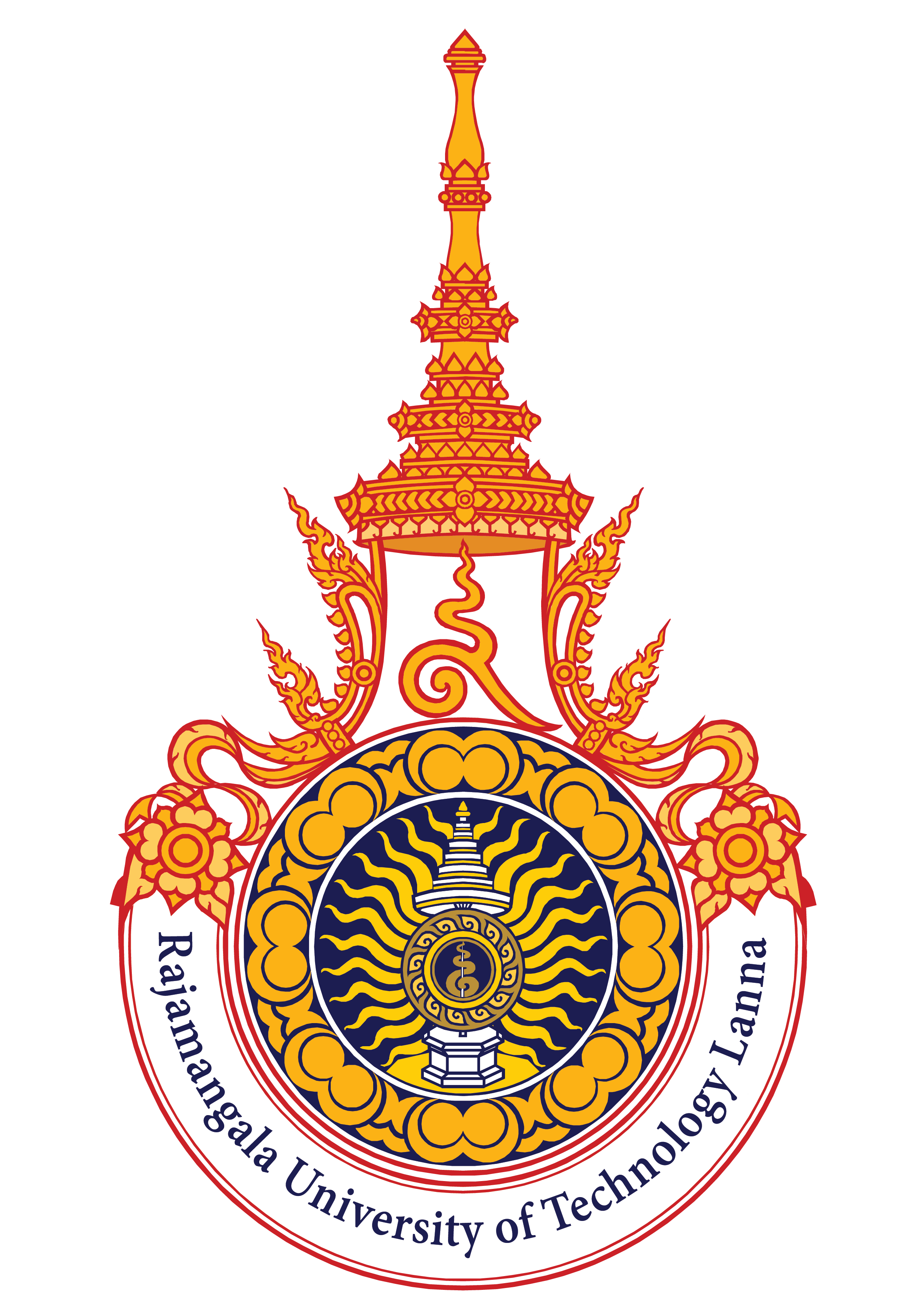
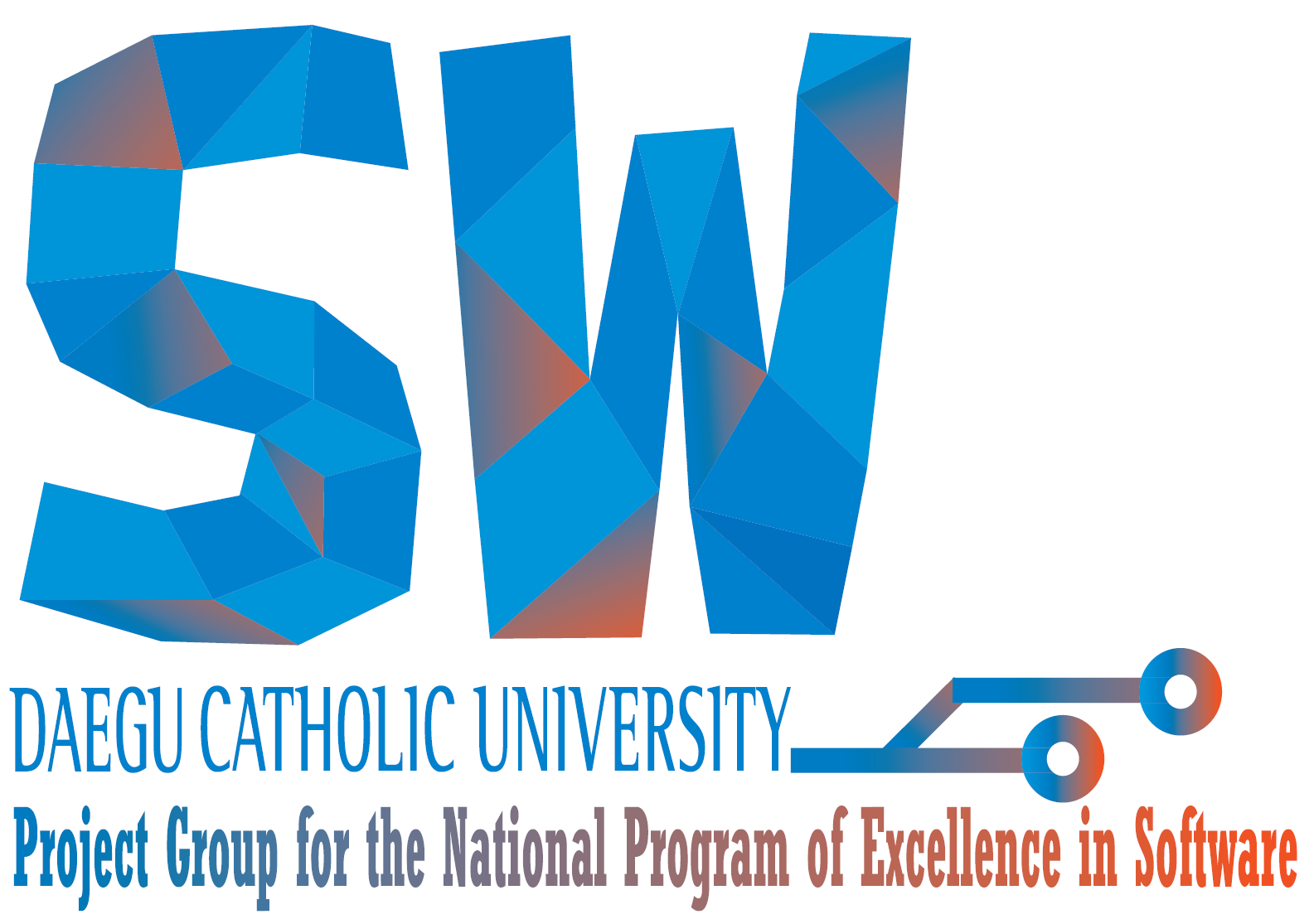
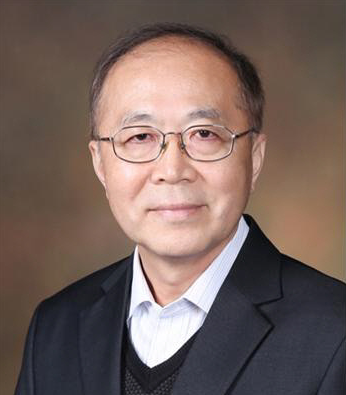 Kwangyun Wohn is an honorary professor of KAIST, Korean and served as a Chairperson of National Research Council of Science and Technology (NST in short). NST is the governing organization that oversees the 25 major national research institutes, including KIST, ETRI, and KAERI. Before he accepted the Chairship of NST, he has been at KAIST as professor for 27 years. He started his professional career at Agency of Defense Development in Korea. Having completed the master’s and Ph.D. studies at University of Wisconsin and University of Maryland, respectively, he had been with Harvard University (USA) as Lecturer, and with University of Pennsylvania (USA) as Assistant Professor. Having returned back to his home country, Korea, he had been with Computer Science Department for fifteen years, and founded a new graduate school, Graduate School of Culture Technology (GSCT) in 2005, and served as Dean. Having retired from KIAST, he still holds the Professor Emeritus of KAIST. Major activities and accomplishments include: Director of Virtual Reality Research Center which is a national center of research excellence, Founding President of Korean Society of Human-Computer Interaction (HCI), Founding President of Korean Society of Performing Art, and Editorial Board of British Computer Society. While his research interests span a broad range of the intersection between art and science – from theoretical aspects to practicalities – he focuses his research efforts to the application of virtual reality technology to various cultural artifacts such as stage performances, museum exhibitions and educationa contents
Kwangyun Wohn is an honorary professor of KAIST, Korean and served as a Chairperson of National Research Council of Science and Technology (NST in short). NST is the governing organization that oversees the 25 major national research institutes, including KIST, ETRI, and KAERI. Before he accepted the Chairship of NST, he has been at KAIST as professor for 27 years. He started his professional career at Agency of Defense Development in Korea. Having completed the master’s and Ph.D. studies at University of Wisconsin and University of Maryland, respectively, he had been with Harvard University (USA) as Lecturer, and with University of Pennsylvania (USA) as Assistant Professor. Having returned back to his home country, Korea, he had been with Computer Science Department for fifteen years, and founded a new graduate school, Graduate School of Culture Technology (GSCT) in 2005, and served as Dean. Having retired from KIAST, he still holds the Professor Emeritus of KAIST. Major activities and accomplishments include: Director of Virtual Reality Research Center which is a national center of research excellence, Founding President of Korean Society of Human-Computer Interaction (HCI), Founding President of Korean Society of Performing Art, and Editorial Board of British Computer Society. While his research interests span a broad range of the intersection between art and science – from theoretical aspects to practicalities – he focuses his research efforts to the application of virtual reality technology to various cultural artifacts such as stage performances, museum exhibitions and educationa contents